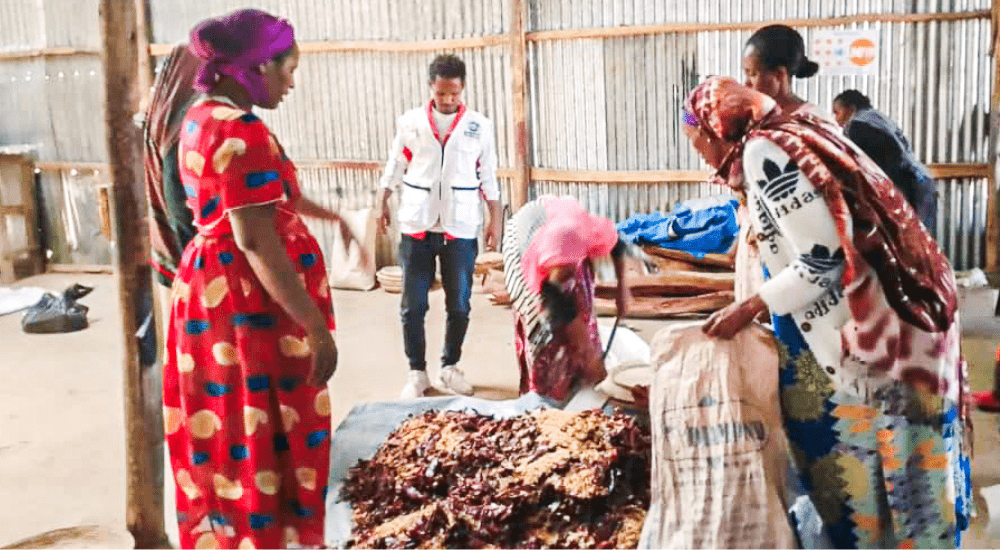Asqual Hailay, a 36-year-old mother from Hawzen Woreda in the Eastern Zone of Tigray, has faced incredible challenges. A mother of five, her life took a drastic turn with the outbreak of the northern conflict in 2020. "Before the war, I had a wonderful and caring family," Asqual recalls. "My husband and I both worked, our children were well-fed, went to school, and lived a good life. After the conflict, my husband left his job to join the army and never returned, leaving me to fend for our five children alone."
The loss of her husband and the ensuing hardships brought severe stress and a mental breakdown to Asqual. She struggled daily to find food for her children. "I had to search for any aid or support to feed my children," she says. "Every morning and night, I took my three-year-old son to Hawzen Primary Hospital for soup prepared by local support groups for hospitalized patients." Feeding her other four children was a matter of chance, often spending days and nights on empty stomachs.
Desperately seeking help, Asqual frequently visited the Woreda Social Affairs Office. "One day, I heard that they were looking for women needing economic support to train and help start their businesses through an organization called Maedot Aid," she explains. Asqual registered and was selected for the training program organized by Maedot Aid, with support from UNFPA.
Equipping women with skills to support themselves
Supported by UNFPA, Maedot Aid trained 100 women out of the planned 550 in 2024 in Mekele, Hawzen, and Shire. The trainees are selected in consultation with the Bureau of Women's Affairs.
At the training center, Asqual and 19 other mothers completed a four-week course on preparing 'Baltina and Mitten' (spices and flour). They were certified and received business licenses to work in groups of ten, with follow-up support from Woreda's Small and Medium Enterprise (SME) Office expert and the Hawzen IGA Training administrator from Maedot Aid. Maedot Aid provides them with a startup kit (Package of Mitin and Shiro (legume flour used to make a dish), Mill Machine, and production materials/utensils). Additionally, Maedot Aid made three-year agreements with microfinance institutions to provide them with loans.
"I walked three kilometers from home to the training center for a month, believing it would change our lives," Asqual says. The women, who initially did not know each other, became friends and are now registered to run their shared business.
The Woreda is working to allocate land for these women to ensure a sustainable workspace. With the startup package provided by Maedot Aid, they will soon begin their work.
A fresh start for Asqual
"Now, I have hope for a fresh start," Asqual says. "We feel a sense of ownership since we each decided to contribute 1000 ETB, apart from the startup kit and capital provided by Maedot Aid, to apply for a loan from the credit agency. I am also the chairwoman of our group. I feel proud to be responsible for the future of my family and others."
Asqual believes such training centers should be expanded to support more conflict-affected youths, women, and girls. "This center should never stop its work," she emphasizes. "There are many mothers like me, who are struggling and deserve this chance. Maedot Aid and others should continue to provide such training, increasing the scope and variety of the training types."
She expressed her gratitude to all those helping her and her family. “This is a second chance at life and a fresh start,” Asqual says.


